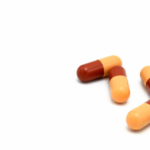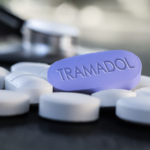May 27, will witness the entire United States of America commemorating National Senior Health & Fitness Day. It is the nation’s largest older adult health and wellness event, now entering its 28th year. The theme for this year is “Life is better in motion!” (1)
In our attempt to commemorate this momentous occasion, let us take a look at the highly beneficial medicinal properties of Gingko Biloba, a herb that has gained popularity as a memory enhancer and an anti-ageing product. Traditional uses include soothing a bladder infection and increasing sexual energy. In fact, it has emerged among the ten most popular dietary supplements sold in the United States.

History of the herb
Historically-speaking, Engelbert Kaempfer was the first European to discover ginkgo, in the late 1600s. By 1771, Linnaeus finally named the tree Ginkgo Biloba which translates into “silver plume with two lobes.”
Although it has long been used in traditional Chinese medicine for lung disorders, Ginkgo extract has more recently been used in Europe and North America against the symptoms of ageing. It is believed to stimulate circulation and oxygen flow to the brain, which can improve problem-solving as well as to enhance memory. (2)

How does it work?
With fan-shaped leaves, Ginkgo seems to improve blood circulation, which might help the brain, eyes, ears and legs function better. It may act as an antioxidant to slow down Alzheimer’s Disease and interfere with changes in the brain that might cause problems with thinking. Ginkgo seeds contain substances that might kill the bacteria and fungi that lead to infections in the body. (3)

Side effects (3)
The possible side effects of this popular supplement include the following:
Considering the above, it should only be used following discussion with a physician.
Precautions before consumption (3, 4)
- Gingko can cause some minor side effects such as stomach upset, headache, dizziness, constipation, forceful heartbeat and allergic skin reactions.
- It might cause an allergic reaction in people who are especially allergic to poison ivy, poison oak, poison sumac, mango rind or cashew shell oil.
- The leaf extract might increase the risk of bruising and bleeding since it is known to thin the blood and decrease its ability to form clots.
- The roasted seed or crude Gingko plant is possibly unsafewhen consumed orally.
- There isn’t enough reliable information available to know if it is safe when applied to the skin.
- Since Gingko is known to slow down blood clotting, it often interacts with other medications that also facilitate slower clotting of blood.
- Gingko can also exaggerate both the good and bad effects of another type of antidepressant, known as monoamine oxidase inhibitors (MAOIs).
Being one of the top pharmaceutical companies in India, Shubham Pharmachem will continue to contribute to the growth of this industry. It is well-poised to further stamp its authority for its production of top quality Active Pharmaceutical Ingredients, herbal extracts, nutraceutical ingredients as well as cosmetic ingredients. Supply chain protection, R&D investments, optimum utilization of the factories and ensuring continuity of supply by working closely with vendors are the key focus areas of this top brand in 2021.
For more information, visit www.shubham.co.in
Disclaimer:
Shubham Pharmachem’s blog posts have been written with the information gathered from approved medical journals and websites online. Our research and technical team strives to provide relevant information through such articles. We strongly advise readers to not consume or administer any medication without prior consultation with their doctor.
References:
- National Senior Health & Fitness Day [online] Available at https://www.fitnessday.com/
- Compass by WebMD [online] Available at https://www.webmd.com/healthy-aging/features/ginkgo-biloba-youth#1
- MedicalNewsToday [online] Available at https://www.medicalnewstoday.com/articles/263105#side_effects
- WebMD [online] Available at https://www.webmd.com/vitamins/ai/ingredientmono-333/ginkgo





